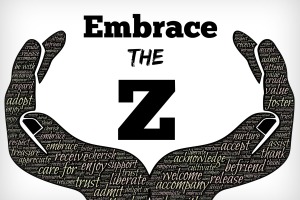The Property Piece of the Mortgage Puzzle
 don’t typically require a general inspection to be completed by a licensed inspector, it’s highly recommended that you get one yourself. Your Realtor usually will have a couple recommendations of credible inspectors in your area. An inspection can cost anywhere from $300 to $800 depending on the scope of work and the property size. Your inspector will examine each component of the house in order to give an opinion on what meets code (electrical, HVAC), what doesn’t meet code, and what the estimated remaining life of items might be (water heater, roof, furnace). The cost that you pay for an inspection pales in comparison to the value you receive by knowing exactly what you’re “getting yourself into” with a potential home purchase.
don’t typically require a general inspection to be completed by a licensed inspector, it’s highly recommended that you get one yourself. Your Realtor usually will have a couple recommendations of credible inspectors in your area. An inspection can cost anywhere from $300 to $800 depending on the scope of work and the property size. Your inspector will examine each component of the house in order to give an opinion on what meets code (electrical, HVAC), what doesn’t meet code, and what the estimated remaining life of items might be (water heater, roof, furnace). The cost that you pay for an inspection pales in comparison to the value you receive by knowing exactly what you’re “getting yourself into” with a potential home purchase.Appraisal
Property Type
- Single family home – This is your typical stick built, built from the ground up, free standing home. You’ll be required to maintain your own landscaping, snow shoveling, and exterior maintenance. You may or may not have an organized homeowners association (HOA) in your neighborhood. The HOA will help with general street maintenance and neighborhood needs. Be mindful of what the HOA fees are because it can have an impact on your debt-to-income ratio. In some areas you may think you’re buying a single family home, but find out too late that it’s a “site-condominium”. Depending on your loan program, your lender may have to do a more extensive review of the property and HOA if the home is found to be a site-condo.
- Condominium – This can be a home in a community of 1 or 2 story homes that are attached, or a building of many stories containing units stacked on top of one another (like an apartment building). You own the interior
of the home. The exterior is typically maintained by the HOA, so the HOA fees are typically more costly on a condo. There are usually amenities like a pool and exercise facility among other things. Condos are popular for people who want to enjoy the benefits of homeownership, but pass on the headache of maintaining anything outside the home. Condos require a more thorough review than any property type. The lender will examine the financials of the HOA in detail. They’ll look for things like reserves, delinquent owners in the community, and insurance coverage. If you are getting an FHA loan or a VA loan, you can find out what condos are already approved in your area. For FHA approved condos in your area click here. For VA approved condos in your area click here.
- Townhome – A townhome can be a very similar setup as the condo that’s in a community with 1 or 2 story homes that are attached. With a townhome you do own the land outside but the HOA will cover day to day maintenance usually. Your lender will contact the HOA, but typically will not be as strict on guidelines as they would be on condos.
- Manufactured home – These are homes that are built in a factory and placed on a piece of property. It can be a challenge to find a lender for manufactured home financing. One of the reasons many lenders do not offer financing on manufactured homes is because manufactured homes typically depreciate in value. In other words, the value of the home will likely decrease over time. Whereas the value in a single family home, condo, or townhome, will typically increase (appreciate). Of course the housing meltdown in recent years has made many people question that fact. But historically, real estate is a great investment, and will appreciate in value.
- Multi-unit – any property that is being sold as piece that has several functional dwellings (units). These are duplex (2 unit home), triplex (3 unit home), and fourplex or quadplex (4 unit home). You can obtain a residential mortgage on multi-unit homes as long as they are 4 or less units. Anything with 5 or greater units will require a commercial loan. Multi-unit homes are a great way to supplement your income and have your mortgage paid for by the tenants.
Escrow Account
- General – Your escrow account is a cushion set aside so that you have adequate funds available to pay your taxes and insurance when they are due. At closing you’ll pay for your full year of homeowners insurance, and several month’s worth of your taxes (depending on the time of year and frequency of taxes due). In your mortgage payments moving forward you’ll pay a fraction of your annual homeowners insurance and taxes. Each payment will contribute to your escrow account so that enough is accumulated when the next tax or insurance bill is due. Your lender will manage your escrow account for you. This keeps things simple for you because you do not have to worry about having to pay a large bill for taxes and insurance two or more times per year. It’s all included in your payment so you have less responsibility to manage. If you have a FHA loan, VA loan, or put less than 10% down, you’ll be required to have an escrow account with your lender.
- Insurance – You’ll need to obtain an insurance policy to cover unexpected, significant damage on the home. Each property type will have different requirements, and needs that will be covered. Your Realtor and your lender can give you insight on what type of coverage to get. Certainly the insurance agent you choose will be the expert in that field on what coverage you need.
- Real Estate (property) Taxes – Be mindful of how much the taxes on your property are. This can make a significant difference on your budget and your debt-to-income ratio. Your taxes are likely to fluctuate, which can cause an adjustment in your monthly escrow payment.
Congratulations!
A few closing tips…
From Livingston County, Michigan expert, and licensed inspector, Dominic Vagnetti of Inspections on Demand. 517-540-0800
-Foundation cracks can be problematic but are most commonly superficial. Look for signs of water leakage that would require injection sealant, gaps larger than 1/4 inch, or horizontal cracks which can be signs of significant movement.
-Foundation waterproofing and drainage are mostly typical of 1970s and newer homes. Prior to that, sump crocks and foundation drain lines were either not present or poorly designed. Signs of water damage or flooding can be found by examining homeowner belongings on the floor or looking for stains on wood walls or shelving. It can be important to differentiate between ongoing flood issues and a single water event like a water heater failure or leak in a pipe.


 of the home. The exterior is typically maintained by the HOA, so the HOA fees are typically more costly on a condo. There are usually amenities like a pool and exercise facility among other things. Condos are popular for people who want to enjoy the benefits of homeownership, but pass on the headache of maintaining anything outside the home. Condos require a more thorough review than any property type. The lender will examine the financials of the HOA in detail. They’ll look for things like reserves, delinquent owners in the community, and insurance coverage. If you are getting an FHA loan or a VA loan, you can find out what condos are already approved in your area.
of the home. The exterior is typically maintained by the HOA, so the HOA fees are typically more costly on a condo. There are usually amenities like a pool and exercise facility among other things. Condos are popular for people who want to enjoy the benefits of homeownership, but pass on the headache of maintaining anything outside the home. Condos require a more thorough review than any property type. The lender will examine the financials of the HOA in detail. They’ll look for things like reserves, delinquent owners in the community, and insurance coverage. If you are getting an FHA loan or a VA loan, you can find out what condos are already approved in your area. 







What questions do you have?